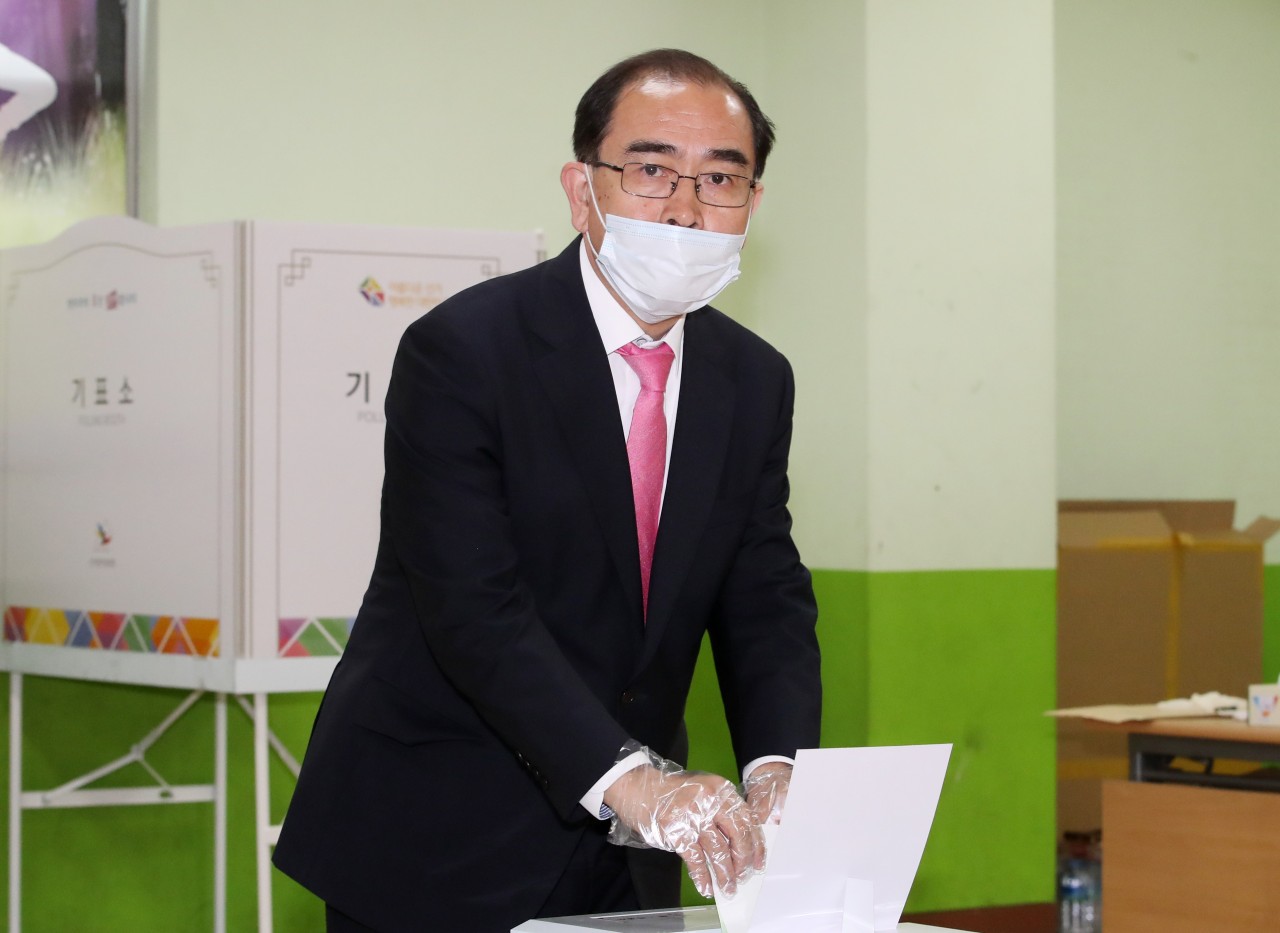 |
Thae Ku-min, better known with his real name Thae Young-ho, of United Future Party, casts ballots in parliamentary elections in the Gangnam district in southern Seoul on Wednesday. (Yonhap) |
The 21st National Assembly will have two members originally from North Korea who have been vocal about their native country’s dictatorship and human rights abuses.
One of them is Tae Ku-min, better known here by his North Korean name, Thae Yong-ho, who became the first defector to be directly elected to South Korea’s unicameral parliament.
Running on the ticket of the conservative opposition United Future Party, the former North Korean diplomat, who settled down here four years ago, garnered 58.4 percent of the vote in a constituency in Seoul’s affluent Gangnam district.
“South Korea is my homeland and Gangnam is my hometown,” a teary Tae said after his victory became certain in the early hours of Thursday. “In 70 years of separation (between the two Koreas), no North Korean was elected in a constituency seat. I think this is the first step to reconciliation and harmony between the people of two Koreas, and to unification.”
Known for its expensive houses and luxury apartment complexes, the Gangnam area has consistently voted conservative, and Tae’s Gangnam-A constituency has not elected a single candidate from the liberal faction since 2000.
Rivals questioned Tae’s credentials, saying said he lacked the connections and experience of liberal democracy, as well as of the district, which is home to the country’s richest and trendiest and where emotions about real estate and the economy run high.
Yet Tae appealed to voters by pledging to undo “excessive taxation,” capitalizing on residents’ anger at President Moon Jae-in’s current real estate policy, which targets owners of expensive homes and of multiple homes.
Tae, 55, was the deputy ambassador of the North Korean Embassy in London when he defected to South Korea with his wife and two sons in 2016 in search of freedom. He is one of the most senior North Korean diplomats to defect to date.
Since his defection, Tae has heavily criticized North Korea’s authoritarian regime under Kim Jong-un, as well as President Moon Jae-in’s engagement policy with Pyongyang.
When he decided to run for a parliamentary seat in February, he said his victory could bring the two Koreas closer to unification, and could send positive signals about democracy to the upper echelon of North Korea, of which he was part.
Tae becomes the first North Korean defector to achieve victory in a constituency election. Previously, Cho Myung-chul, a former professor at Pyongyang’s Kim Il Sung University, was a member of the National Assembly from 2012 to 2016, but he was elected through the proportional representation system.
Meanwhile, another defector -- Ji Seong-ho, who is known for his surprise appearance at President Donald Trump’s 2018 State of the Union address -- secured a seat through the proportional representation system. He ran as part of the Future Korea Party, a group affiliated with the main opposition. Since settling down here, Ji has campaigned for human rights in North Korea.
By Ahn Sung-mi (
sahn@heraldcorp.com)







![[Today’s K-pop] Blackpink’s Jennie, Lisa invited to Coachella as solo acts](http://res.heraldm.com/phpwas/restmb_idxmake.php?idx=644&simg=/content/image/2024/11/21/20241121050099_0.jpg)
